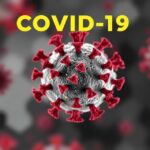Fueling your body before a workout is essential for maximizing performance, enhancing endurance, and speeding up recovery. Whether you’re an athlete, gym enthusiast, or just someone trying to stay fit, what you consume before a workout can significantly influence your results. Two popular options often debated are pre-workout meals and pre-workout supplements.
So, which one fuels your body best? In this in-depth article, we’ll compare pre-workout meals vs. supplements, explore their pros and cons, look into timing and ingredients, and help you choose the best fuel for your fitness goals.
What Are Pre-Workout Meals?
A pre-workout meal is a balanced combination of macronutrients—carbohydrates, proteins, and fats—consumed 1–3 hours before exercising. These meals are designed to:
Boost energy
Stabilize blood sugar
Prevent muscle breakdown
Improve focus and stamina
Example Pre-Workout Meals:
Oatmeal with banana and a spoon of peanut butter
Chicken breast, brown rice, and veggies
Greek yogurt with berries and honey
Whole wheat toast with eggs
What Are Pre-Workout Supplements?
Pre-workout supplements are concentrated powders or drinks formulated to boost performance, energy, and mental focus. They typically contain ingredients like:
Caffeine
Creatine
Beta-Alanine
L-Citrulline
BCAAs (Branched-Chain Amino Acids)
Nitric Oxide Boosters
These are usually consumed 15–30 minutes before a workout.
Nutritional Components of Pre-Workout Fuel
| Nutrient | Role in Performance | Found in Meals | Found in Supplements |
|---|---|---|---|
| Carbohydrates | Provide immediate energy | ✓ | ✕ (some include simple sugars) |
| Proteins | Muscle support, recovery | ✓ | ✓ (BCAAs, whey) |
| Fats | Long-lasting energy | ✓ | ✕ |
| Caffeine | Boosts energy and focus | ✕ | ✓ |
| Creatine | Increases strength & power | ✕ | ✓ |
| Electrolytes | Hydration & muscle function | ✓ | ✓ |
| Beta-Alanine | Reduces fatigue | ✕ | ✓ |
Benefits of Pre-Workout Meals
✅ Sustained Energy
Whole foods offer slow-digesting carbs and healthy fats that release energy gradually—ideal for long workouts.
✅ Better Digestion and Satiety
Meals make you feel fuller and more satisfied, especially during high-intensity training.
✅ Natural Nutrients
They contain vitamins, minerals, and antioxidants that supplements lack.
✅ Versatility
Can be customized based on dietary preferences (vegan, gluten-free, etc.).
Benefits of Pre-Workout Supplements
✅ Convenience
Quick to mix and consume—perfect for busy lifestyles or early morning workouts.
✅ Improved Focus and Alertness
Thanks to ingredients like caffeine and L-theanine, they enhance mental clarity.
✅ Enhanced Performance
Creatine and nitric oxide boosters increase strength, endurance, and muscle pump.
✅ Reduced Muscle Fatigue
Beta-alanine and BCAAs help delay fatigue and improve muscle recovery.
Side Effects and Considerations
⚠️ Pre-Workout Meals
Need to be timed properly (1–2 hours before workout)
May cause sluggishness if too heavy or fatty
Individual digestion rates vary
⚠️ Pre-Workout Supplements
Can cause jitters, anxiety, or insomnia (especially caffeine-sensitive users)
Risk of dependency
Some may contain banned or harmful ingredients (always check the label)
Expensive over time
Pre-Workout Fuel Based on Fitness Goals
| Goal | Recommended Fuel | Why? |
|---|---|---|
| Weight Loss | Meals with lean protein & low GI carbs | Keeps insulin stable, reduces cravings |
| Muscle Gain | Supplements + carb-rich meal | Maximizes energy & muscle synthesis |
| Endurance | Carb-heavy meals + electrolytes | Provides lasting fuel & hydration |
| Quick Energy Boost | Caffeinated supplements | Fast stimulation & focus |
What Science Says: Studies and Research
📚 Study 1: Journal of the International Society of Sports Nutrition (2013)
Caffeine and creatine supplementation significantly improved anaerobic performance and endurance during HIIT workouts.
📚 Study 2: Nutrition Reviews (2018)
Whole-food pre-exercise meals improved sustained energy release and reduced post-workout inflammation compared to fast-acting supplements.
📚 Study 3: Sports Medicine (2020)
Beta-alanine improved high-intensity performance when taken regularly for 4+ weeks—not effective for occasional users.
Best Practices for Pre-Workout Nutrition
🕒 Timing Matters
Meals: 1.5 to 3 hours before workout
Supplements: 15 to 30 minutes before workout
⚖️ Portion Control
Avoid heavy meals that slow you down. Choose high-carb, moderate protein, and low-fat options.
💧 Hydration
Regardless of what you eat or drink, water is essential. Dehydration can ruin your performance.
🧠 Listen to Your Body
Some people thrive on caffeine; others feel anxious. Test and find what works for you.
🧪 Check Ingredients
Choose clean-label, third-party tested supplements free from banned substances.
Conclusion: Which Is Right for You?
There’s no one-size-fits-all answer in the debate of pre-workout meals vs. supplements. It comes down to your goals, schedule, budget, and how your body reacts.
| Situation | Best Option |
|---|---|
| Early morning, no time to eat | Pre-workout supplement |
| Training for over an hour | Balanced meal |
| Strength training | Combo of meal + creatine supplement |
| Fat-burning cardio | Light meal, low in sugar |
| Busy lifestyle | Supplement for convenience |
| Sensitive stomach | Light meal or low-stimulant supplement |
✅ For Beginners: Start with real food. Master your basics.
✅ For Athletes: Combine both for peak performance.
✅ For Weight Loss Enthusiasts: Choose natural meals to avoid hidden sugars and calories in supplements.
FAQs
Q1. Can I take supplements and eat a meal before a workout?
Yes. If timed correctly, combining both can give you energy and performance benefits.
Q2. Is black coffee a good pre-workout option?
Yes, it provides caffeine for energy and focus without added calories.
Q3. Are natural foods better than supplements?
For most people, yes. Whole foods provide balanced nutrition and fewer side effects.
Final Thoughts
Your body is your engine, and what you put into it determines how it performs. Whether you go for a banana and peanut butter toast or a scoop of pre-workout with creatine, make sure it suits your goals, your schedule, and your body chemistry. Stay consistent, monitor your results, and fuel up smartly for your best performance every time you hit the gym.
Related posts:
 Unlocking the Secrets of Sleep: How Sleep Physiology Shapes Brain Function
Unlocking the Secrets of Sleep: How Sleep Physiology Shapes Brain Function
 Why Late Middle Age is So Important: A Transformative Phase of Life
Why Late Middle Age is So Important: A Transformative Phase of Life
 Mind and Body Balance: A Holistic Approach to Health, Happiness, and Success
Mind and Body Balance: A Holistic Approach to Health, Happiness, and Success
 New COVID-19 Variant 2025: Symptoms, Spread, and Safety Measures You Must Know
New COVID-19 Variant 2025: Symptoms, Spread, and Safety Measures You Must Know
 Is COVID-19 Becoming Endemic in India? An In-Depth Analysis?
Is COVID-19 Becoming Endemic in India? An In-Depth Analysis?
 The Role of Gut Microbiome in Overall Health: The Hidden Ecosystem Within You
The Role of Gut Microbiome in Overall Health: The Hidden Ecosystem Within You
